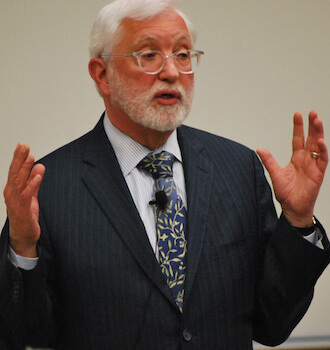A gay immigrant from Jamaica, who was subject to deportation based on state law convictions in Connecticut, now has a second chance to win a reprieve based on an August 9 federal appeals court decision.
A three-judge panel of the Second Circuit Court of Appeals that included Judges Pierre N. Leval, Reena Raggi, and Raymond J. Lohier, Jr., found that the Board of Immigration Appeals misapplied the law and failed to consider strong evidence from the US State Department’s Human Rights Report on Jamaica as well as from a former leader of a gay rights group there about the dangers facing men known to be gay. The court sent the case back to the BIA for reconsideration of a relief claim under the international Convention Against Torture (CAT).
The court’s “unpublished summary order” does not include a detailed account of the petitioner’s description of his experiences growing up gay in Jamaica, but mentions his claim that he was raped by an uncle, who allegedly threatened to “slit his throat for revealing the rapes and spreading rumors” that the uncle himself is gay. The uncle’s son allegedly threatened to kill his cousin “for levying accusations of homosexuality” at both father and son. The petitioner, who claimed he is widely known to be gay in Jamaica, blamed his uncle and cousin for “his childhood sexual traumas,” according to the summary.
Federal appeals court slaps down Board of Immigration Appeals’ conclusion
Because of his criminal record, described only as “an aggravated felony and a controlled substance offense,” the CAT claim is the petitioner’s only recourse in avoiding deportation. In order to win relief under CAT, a petitioner must show that “it is more likely than not that he or she would be tortured if removed to the proposed country” and that “government officials would inflict such torture, or otherwise acquiesce in it.”
In addition to his claims of sexual assault and threats from his relatives, the Jamaican man also introduced the State Department’s 2013 Human Rights Report, which states, according to the court, “that, in Jamaica — where laws criminalize ‘acts of gross indecency… between persons of the same sex’ — lesbian, gay, bisexual, and transgender (‘LGBT’) individuals suffer ‘serious human rights abuses, including assault with deadly weapons, ‘corrective rape’ of women accused of being lesbians, arbitrary detention, mob attacks, stabbings, harassment… by hospital and prison staff, and targeted shootings.”
That report “further states that ‘brutality against [gay men], primarily by private citizens, was widespread in the community,’ and that ‘gay men hesitated to report such incidents against them because of fear for their physical well-being.’ Moreover, ‘although individual police officers expressed sympathy for the plight of the LGBT community and worked to prevent and resolve instances of abuse, the police force in general did not recognize the extent and seriousness of violence against members of the LGBT community, and failed to investigate such incidents.”
The appeals panel also referred to a letter from “the former director of the Jamaica Forum for Lesbians, All-Sexuals & Gays (‘J-FLAG’),” which stated that while “there have been improvements in the overall response of the police in the past year, the police frequently refuse to investigate crimes against gay individuals… Gay Jamaicans are not simply subject to violent persecution, but also are understood as safe targets for robbery, extortion, and murder because of their outcast status.”
The BIA accepted the Immigration Judge’s original conclusion that the petitioner failed to show “government acquiescence” because there was “insufficient evidence that the Jamaican government ‘indirectly condones the torture’ of gay individuals,” but the Second Circuit found that this statement “appears to have ‘totally overlooked’ the contrary record evidence.” It is not necessary for a petitioner to show that the government wants people to torture gays or intends to leave gays at the mercy of the mob; it is enough to show that government officials “know of or remain willfully blind to an act and thereafter breach their legal responsibility to prevent it,” the appeals panel found.
The ruling is an effective bench-slap against the BIA for ignoring the strongly-worded State Department Human Rights Report on Jamaica — a report that is regularly confirmed by press accounts of anti-gay activity in that country — and a major victory for the petitioner’s appellate attorney, Jon Bauer of the University of Connecticut School of Law’s Legal Clinic.
It is worth observing that during the Bush administration the State Department itself seemed willfully blind to anti-gay persecution in many of its Human Rights Reports, while the Obama administration, with Hillary Clinton and John Kerry heading the State Department, has provided much more inclusive and accurate reporting about anti-gay conditions around the world.

































